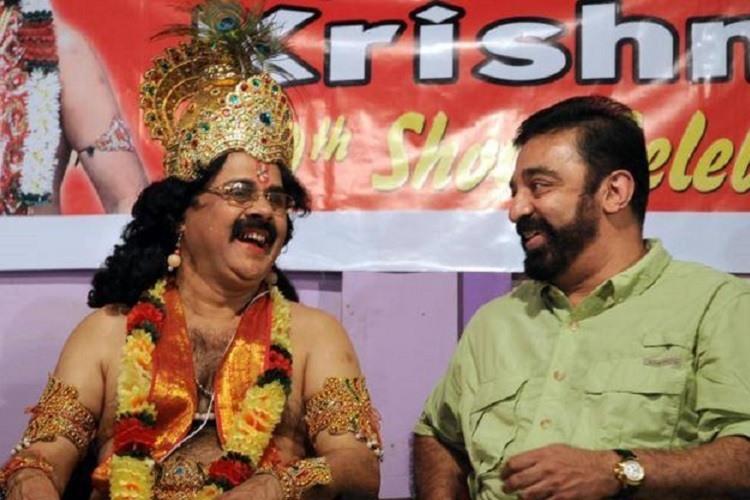Tamil theatre gets a facelift
The grandeur and sheer large-scale of plays by veterans like Nawab T.S. Rajamanickam Pillai and R.S. Manohar have been known to Tamil theatre enthusiasts in the city. For all those aficionados who missed out on their productions, the recent Magic Lantern Theatre’s adaptation of Kalki’s Ponniyin Selvan was surely a chance to make up for it. The production was the perfect blend of charms of classical Tamil theatre with contemporary art design, music and lighting. The play has been running to full houses and might even make way to foreign shores.
Similarly, Crazy Mohan’s play Chocolate Krishna saw its 777th show being staged recently in Chennai. Madhuvanthi Arun’s Perumale and Siva Sambo were other recent vernacular plays that managed to draw in large crowds and ran for weeks together.
Tamil theatre is being reinvented to cater to the taste of present generation. “I never thought it would come this far,” observes Crazy Mohan. His ideology is quite simple and straight. “My sense of humour is meant for thorough entertainment of the masses. Chocolate Krishna strikes a chord especially among the kids. My next play is ready, which is titled Google Gadotgajan, a sort of sequel to the current one," Mohan adds.
Though most of his plays are in the comedy genre, Mohan is absolutely serious when it comes to his business. He says when he started; his audience was mostly above the age of 40s. “Comedy is not an easy thing. The main aim is to make people laugh. At the end of the play, when you hear resounding applause from the audience, it is the most satisfying experience. Slowly, with the influx of newer theatre groups in the city, stage plays are catering to a large audience and diverse age groups," Mohan explains.
Sharing the success story of her stage plays, Madhuvanthi Arun says clean comedies that appeal to the family audience really work well. “Cinema has enough violence and slapstick comedy. When audiences come to watch plays, they want to have a hearty laugh. That’s what Maham, our theatre group aims to provide,” she says, adding, “English plays are given an elitist tag whereas Tamil dramas are not. This mindset has to change. I am not comparing both, but we have to keep setting high standards for local theatre and exceed those standards ourselves!"
Veteran theatre artiste AR Srinivasan aka ARS, a recipient of Sangeet Natak Akademi Puraskar for his contribution to Tamil theatre, who has over 3,000 stage performances to his credit, says Tamil dramas are doing brilliantly well in terms of audience turn out now than last five years.
Sharing his insight about the Tamil theatre scene, Srinivasan says, “During the early days, there were many drama groups. But now, they are few in number and they are working towards modernising vernacular theatre. Movies, television and a change in people’s lifestyle have also influenced the trend of stage plays."
But vernacular theatre does face quite a few roadblocks. Sixty-two-year-old MB Moorthy, who belongs to the theatre group Gurukulam, says financial aid and sponsors are major problem areas. “Sponsors are only concerned about publicity. They don’t really have the intention of nurturing arts and theatres. Also funding is necessary for staging plays. For many theatre groups, retaining artistes is a challenge. If you need to attract the young viewers, you need content that appeals to them like day-to-day issues,” he signs off.
(The piece was originally written for Deccan Chronicle)



Comments
Post a Comment